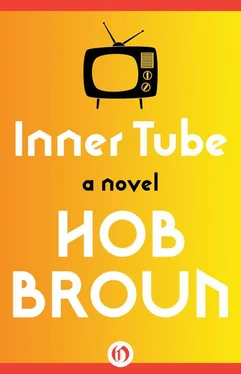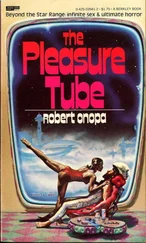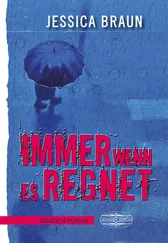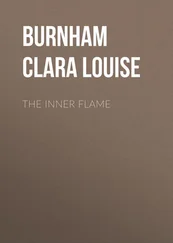In Memory
Of
Quincas Borba
“To the victor, the potatoes!”
YOU’RE NOT GOING TO like this, but some years ago, in the family room of the house where I grew up in Lake Success, New York, my mother cancelled an unrelenting life by plunging her head through the twenty-six-inch screen of a Motorola color television.
Sadly, she was alone at the time, this being a suicidal method surely designed for an audience, she a woman who had played Broadway opposite David Wayne, had for several seasons been something of an attraction at the summer playhouses of Cape Cod. But we were all gone that night — my father at a political banquet, my sister in the dark solitude of northern woods, me on the job, vigilant in the newsroom of a major network — and I guess she just couldn’t wait. Still, that someone so corroded by the defeat of her acting career should play to an empty house — this really fit.
Perhaps she satisfied herself by anticipating the impact our hideous discovery would have. But a neighbor got there first, a retired petrochemicals executive dropping by to return a belt sander. Official vehicles had gathered by the time I got home, and the mopping up was nearly over. I did not see her face charred by implosion, haloed with bright drainage from jugular and carotid.
I saw my father in his tuxedo, a fifth of vodka in one hand, talking to the room as though it were empty.
“I didn’t know,” he said many times. And then: “We were talking about a trip to Venice.”
A man in a black raincoat, some functionary, took his arm. “Sir, you just can’t predict these things like the weather.”
My father snarled, turned, broke that vodka bottle over the man’s head, and there was a fresh confusion of blood all over. I remember thinking: Not a bad move, Gordo. Not bad at all.
Her note, though explicit, made nothing clear. In green ink on monogrammed paper centered perfectly on the mantelpiece, it went like this:
Darlings—
Must go, must go. It’s (I’m) all so ugly. Can’t we please be rid of it. Nothing more, nothing less. Darlings.
Right there by the note was a bottle of sleeping pills. Did this mean she’d meant to go out sweet and calm? That the dive through the picture tube had been a mad impulse? So the others concluded, but I knew better. I recognized her lumbering irony; I understood that the pills, with a mother’s infuriating thoroughness, had been left for the consoling sedation of her survivors.
But nothing could have quelled the noise of the next few days: surmises, recriminations, regrets, all the worthless usual. I tried to stay out of it. I felt miserable, all right, but it wasn’t a matter of pride. My stance was she knew what she was doing. She had so many reasons to leave the world, enough to fill a Chinese menu, what difference did it make which one she’d finally chosen?
I was curious about something else, though. Chances are you’ll like this even less, but I really had to know. The coroner’s office had placed the time of my mother’s death between 8 and 9 p.m. Hauling out the busted set, I’d noticed it was tuned to channel four. I snouted through old newspapers in the garage, traced the information down.
Minutes before her death, my mother was watching a Bob Hope Special.
It had been a brusque and stormy spring.
I WATCH, MY ATTENTION paid like a war tax. I float obediently on waves that travel at the speed of light. Electromagnetic tides. A boiling mass of ocean miniaturized, tightened in a square. Color-coded, like the iodopsin-secreting cone cells of the human retina, 900,000 phosphor dots twitch and fluoresce on the aluminized screen. And I watch, under siege. Electron guns, red, blue, and green, fire information particles, their inexhaustible ammunition, at 167 million miles an hour. Weaponry controls and commands. So I watch.
But when I place my hand against the screen, feel its warmth, the static charge is a caress, a whisper that outlines my fingers with the tenderness of a perfect lover. Is this part of the menace, or the reason for it? Is it jealousy? That every living image is a rival? I lay my cheek now on the glass behind which guns are camouflaged, and listen to the gentle inside hiss. Vigilance, a song of the guts. Red gun. Blue gun. Green gun. Light sieves through the patterned bullet holes, each nine one-hundredths of an inch across, and cloaks my face like a woman’s breath pushed slowly through clenched teeth.
Like all the others, I have prescribed patterns of work. Alert at my viewing station, I review an old Hope broadcast, Bob entertaining the troops at Da Nang or somewhere, all these kids hunkered down around the stage with their lawnmower haircuts and bared teeth. Boys will be boys is the order of the day. Hope fingers the shaft of his three wood and promises flesh: Majorettes of the Big Sky Conference, like that. I switch to single-frame advance, dissecting the famous Hope sneer, observing each interval as he looks into the wings. I feel the tension of assassination film, of Hope turning toward the pop sounds.
Every animal society requires means of recognition: gestures, signs, insignia. The ant, which sees little and hears less, distinguishes the scent uniforms worn by others with the olfactory organs located in its antennae. Each ant nest, in turn, has its definitive aroma. Separate a colony into two groups, reunite them three months later, and they will go to war, unable to bear each other’s smell.
The recirculated air here at the facility smells like cold 8tyrene. My personal fume is an amalgam of nicotine, dry-cleaning fluid, and the shrimp salad I had for lunch. Also, spring-clipped to my shirt is a magstrip security badge with my photo in the upper lefthand corner.
So here I am, eighty-five feet underground, all tipped in with my keyboard and my liquid crystal displays. The hard contours and absence of reverberation can dull reflexes. People take vitamin D tablets and make uneasy jokes about “the bunker mentality.” Nature sounds are piped into the lounge areas — birdsong, gentle rain, like that. And every thirty minutes a white strip moves across the bottom of my screen, reminding me to stop and rest my optic muscles.
I suppose what this is is a part of the new service economy. We serve the overdeveloped appetites; we chop, form, cook, and garnish the databurgers that they’re all so hungry for. Record, observe, analyze. Amour-propre, the love that cannot speak its name. One of the things I like best about this place is I don’t know who I’m working for.
The phone makes its bleating noise and I pick up. Delvino, one of the suit people with an up-there office he can see out of.
“How goes it?”
“Round and round.”
“Reeling under the workload? If it’s too much, I wish you’d let me know.”
In his wallet Delvino carries a picture of General Sarnoff, that visionary of the steppes, that great broadcaster, a fisher of men casting wide his net.
“You take things too seriously,” Delvino says. “That’s my sense.”
Then he tells me the Agronomists’ Working Group of Ontario has telexed a request for some 4-H Club show off a station in Des Moines. Farm, Home & Garden. He throws a few numbers at me and I ask why he’s wasting my time when he should be talking to someone in Dubbing. Office banter, a war of small moves.
“I don’t know, I’m just loose. Such a day out there.”
He must be looking at the wide lawn maintained by water piped from an underground reservoir forty miles away.
Got to rest more than my optics. I move down the corridor, past the cells of other workers, and into the elevator. Very peaceful. I pump myself up and down in the tube for a while, finally step off at Demographics and Profile. The walls are Caribbean blue with a continuous white stripe at eye level. The halls slant diagonally toward a hub, the hermetic domain of the mainframe computer. Empty halls, not a cyberneticist in sight. But I am close enough to hear the whirring tape drives, cooling fans, the nasality of printers printing. My superstitions are prodded: bad medicine in this place. Backtracking, I pass a door that was closed before, is open now. Two men with paper boutonnieres confer on a black Naugahyde couch.
Читать дальше












